
The Global Marketing Show, hosted by Wendy Pease at Rapport International, helps growth-minded marketers expand into international markets and boost multilingual lead generation and revenue. Each episode features experts from industries like medical devices, industrial manufacturing, consumer brands, government, and education sharing real-world lessons on how to go global the right way. Discover actionable strategies for translation, localization, transcreation, and cultural adaptation, plus insights on the technologies, workflows, and quality standards that drive global marketing success. Whether you manage global campaigns, oversee multilingual content, or lead international sales, this podcast is your guide to building a brand that connects across languages and cultures.
The Global Marketing Show, hosted by Wendy Pease at Rapport International, helps growth-minded marketers expand into international markets and boost multilingual lead generation and revenue. Each episode features experts from industries like medical devices, industrial manufacturing, consumer brands, government, and education sharing real-world lessons on how to go global the right way. Discover actionable strategies for translation, localization, transcreation, and cultural adaptation, plus insights on the technologies, workflows, and quality standards that drive global marketing success. Whether you manage global campaigns, oversee multilingual content, or lead international sales, this podcast is your guide to building a brand that connects across languages and cultures.
Episodes
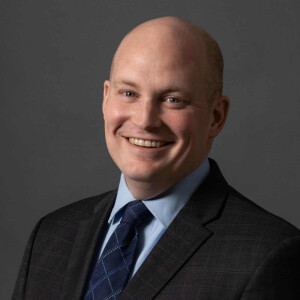
Wednesday Jun 07, 2023
Patents, Exporting, and Translation - Show #113
Wednesday Jun 07, 2023
Wednesday Jun 07, 2023
Dave Roccio of Lando and Anastasi, a Boston-based law firm specializing in intellectual property (IP), takes a holistic view on patent filing – it’s not just about filing the patent application, it’s about his client’s stage in business, what they want to achieve, and their long-term goals.
One telling example, he shares, is that of a tech company client that received funding and had 10 technologies to protect. They had funding, a strategy, and needed to move fast to protect their inventions. They budgeted about $10k per patent (the average cost of a single filing) and had one year to determine the countries in which to file, not an easy decision as each country would require another $100K for 10 filings.
This is where Dave’s holistic approach comes in; he will advise his clients on where, when, and what to file. The first three variables to consider are:
- The opportunities in the home country;
- Where your clients are; and,
- Where your competitors are.
As part of the process, Dave determines whether the client would benefit from complete applications, wholly protecting them from competitors on many different levels, or if it’s better to file quickly for minimal, viable commercial usage. Interestingly, his electrical engineering background also means that where he ultimately chooses to file may differ from other patent attorneys’ choices.
That said, he adds, US companies most commonly file for patents in:
- Europe – the European Patent Office oversees the countries in the region but is not affiliated with the official EU, so the UK is still part of this group. Companies file one application and then choose the countries they want to enter.
- China
- India
- Australia
- Canada
Rules around translation vary according to country, but every office usually requires translation into the local language. When deadlines are especially tight and attorneys need immediate understanding of particular content, the firm will sometimes utilize machine translation; however, a one-word mistake in a patent application can cause a lot of issues – delays, denials, extra time, and costs. Ultimately, it’s a balancing act between time and accuracy and, should that fail Dave will always turn to human translators to ensure accuracy.
Timeliness is of utmost importance for companies managing patents and other IP. Global marketers, too, should check for patent protections before selling into a new country. Going to market prior to the patent process starts the clock on the time allowance for patent applications; if a company tries to file a few years after entering the country, they likely won’t be able to protect their IP.
Links:
Website: https://lalaw.com/
LinkedIn: https://www.linkedin.com/in/davidroccio/
Connect with Wendy - https://www.linkedin.com/in/wendypease/
Music: Fiddle-De-Dee by Shane Ivers - https://www.silvermansound.com
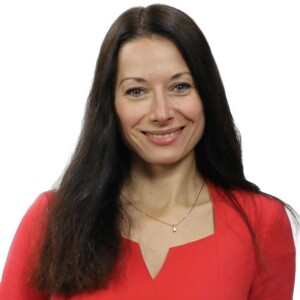
Wednesday May 31, 2023
From Chocolate Stress to Joy - Show #112
Wednesday May 31, 2023
Wednesday May 31, 2023
Natalya Berdikyan is Founder and CEO of Life by Design, an executive coaching company “help[ing] individuals and organizations grow beyond borders and boundaries.” A truly global citizen, Natalya hails from the former Soviet Union and has lived in 6 countries; she speaks 4½ languages. A former executive for a multimillion dollar chocolate producer in Belgium, she has sold confections all over the world.
I found it fascinating to learn about confectionary global preferences – for example, Natalya’s almond sweets are gifted on specific occasions, depending on the country:
Belgium – to welcome newborns
Italy – to celebrate marriage
Luxembourg – for communion
Portugal – at Easter
Norway – on Valentine’s Day
Natalya used a “pull” strategy to enter each market: trade shows allowed her to assess the current landscape then develop unique, differentiated products. Focusing on innovative color creation, distinctive merchandise, and special packaging for holiday and special occasion gifts, the company’s custom manufacturing option also meant made-to-order adjustments – for one, customized ingredients to meet changing consumer demands for healthier treats. Retailers and distributors were inevitably “pulled” in, attracted to the opportunities for originality and increased market share.
The company catered to three major outlets:
- Bulk sales to distributors packaging product for multiple brands.
- Co-created, co-branded product for retailers.
- Company-branded product sold direct-to-market.
As co-owner of the confectionary company, Natalya met with clients worldwide and during her travels, developed a cultural intelligence that fueled her success. She recalls her early confusion in the US when asked: “How are you doing?” No one expects an answer, she says, it’s used as a greeting! She had to learn how to stop answering the question.
In the very middle of running a successful company and a perfect life full of parties, money, and achievement, Natalya realized she felt unhappy. Upon slowing down to figure out why, she realized that she had bought into society’s rules about what success looks like, and a life full of wine, money, sugar, and limiting beliefs did not feed her soul.
Drawing on that experience, and the belief that anyone can thrive – not just survive – through life changes, Natalya launched Life by Design, an executive coaching firm designed to help entrepreneurs and leaders build the life they want. She provides coaching, training, and holistic retreats to improve people’s energy so they can become better leaders in business and in life.
If you’d like to talk to Natalya, you can reach her on LinkedIn or through her website.
Links:
More About Natalya: https://www.lifebydesign-academy.com/about-natalya
Website: https://www.lifebydesign-academy.com
Contact: contact@lifebydesign-academy.com
LinkedIn: https://www.linkedin.com/in/natalyaberdikyan/
YouTube: https://www.youtube.com/@natalyaberdikyan
Facebook: https://www.facebook.com/natalya.berdikyan
Instagram: https://www.instagram.com/natalyaberdikyan/
Connect with Wendy - https://www.linkedin.com/in/wendypease/
Music: Fiddle-De-Dee by Shane Ivers - https://www.silvermansound.com

Wednesday May 17, 2023
Dad Jokes and Board Games - Show #111
Wednesday May 17, 2023
Wednesday May 17, 2023
John Coveyou is the founder of Genius Games and king of dad jokes around the campfire: “Have you heard the one about the sidewalk? It’s all over town!” So, it makes sense that he’s always had a passion for game design, too. Throughout his military service – during which he discovered his love for science – and while earning a master’s degree in engineering, he wondered why there were no games on science concepts like the periodic table, biology of the human body, or the atom. And just like that, Genius Games was born!
Genius Games now offers more than 50 games that sell worldwide. Originally, John fielded requests from other English-speaking countries – the UK, Australia, and Canada were early adopters – and soon after, often at US game conferences, he found himself fielding inquiries from international distributors eager to sell into their home countries.
John soon discovered that, instead of working with multiple distributors, building relationships with in-country game publishers possessing native fluency of local languages simplified his operations and increased revenues. To support that structure, John built Genius Games as a multi-national rather than global company, allowing for greater autonomy, cultural adaptation, and customized product offerings within each individual country, as opposed to a global company with centralized operations and static processes. For example, the company’s publisher in Spain translates game and product information into Spanish, pays for production costs, then sells the games into international markets. Margins are lower, but royalties are consistent and all profit. Listen to the full episode to hear more on the accounting and numbers!.
Currently, about 20% of the company’s revenue comes from international markets, thanks to the relationships built with overseas publishers visiting the US, and Genius Games are now translated into Spanish, French, Italian, German, Chinese, Hebrew, Polish, Russian, Korean, and other southeast Asian languages.
To complement the expansion effort, in 2022 I introduced John to his state’s export representative; he ultimately secured a STEP grant covering his attendance at an international trade show. The grant paid for travel, lodging, and conference fees and connected John with exporting help from international groups and additional growth opportunities. For instance, he now understands the importance, and mechanics, of adding translation to his website to drive more sales to his partners. A multilingual website optimizes the experience for people searching for Genius Games – or games in general – by recognizing their native language. The strategy increases the company’s reach – consumers will more often buy from websites in their native language – and linking to partner websites for the sale prevents cannibalizing partner sales. (If you’re interested in exporting and want to be connected to your state export rep, reach out to me for an introduction.)
Even with such meaningful success in consumer and international sales, John still sees room for growth. Genius Games has yet to tap into the educational market – if you’re a potential partner or have any connections or resources to help with access to the educational market, please reach out to John on Linked In.
To have fun, play some Genius Games available on their website or Amazon.
Links:
Website: https://www.geniusgames.org/
LinkedIn: https://www.linkedin.com/in/john-coveyou-15586163/
STEP Grant Information: https://www.sba.gov/funding-programs/grants/state-trade-expansion-program-step
German Words (Butterfly): https://www.youtube.com/watch?v=jo0Hsx-yHiI
Connect with Wendy - https://www.linkedin.com/in/wendypease/
Connect with John - https://www.linkedin.com/in/john-coveyou-15586163/
Music: Fiddle-De-Dee by Shane Ivers - https://www.silvermansound.com
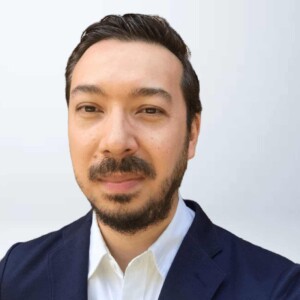
Wednesday May 10, 2023
Third Culture Kid on What We Can Learn From China - Show #110
Wednesday May 10, 2023
Wednesday May 10, 2023
Christian Klepp, Co-Founder of EINBLICK Consulting, explains that as a “third culture kid” he grew up in Austria, the Philippines, Singapore, and Germany, landing in China as a young adult. This experience of living across countries gives him and other second- or third culture kids the appreciation and ability to navigate cultures since they’ve had to do so from a young age.
It's fascinating to hear about how Christian helps Chinese-speaking clients enter the Canadian and US markets, the perfect complement to his past experiences helping English-speaking companies enter China.
He shares a story about a medical device company that entered China with the attitude of “what got us here, will get us there.” Instead of taking the time to understand the market for their non-invasive blood sugar measuring device, the company assumed doctors would promote the device to their patients, not knowing that such practice is prohibited. Instead, hospital procurement teams must approve the use of any new device; doctors can recommend devices to the procurement teams but not directly to patients. This adds another layer of relationships to the sales cycle that the team could not anticipate because they did not hire a Chinese partner connected into the health system for the launch in China.
In addition, 90% of people in China are on their cell phones looking to key opinion leaders (KOLs) for information on doctors and healthcare. Mobile marketing and social media are more influential in China than in other markets.
Christian also talks about the importance of accurate translation and cultural adaptation. China is a big country segmented by tiers of development; major cities along the east coast have a much different standard of living than rural communities, so what might work in the city could be different than in rural areas. It’s also important to be mindful of the spoken and written Chinese language. Although there are hundreds of dialects, there is only one written language. People may not be able to speak to each other, but they can write to communicate.
Christian shares some interesting case studies about brand name translation:
- Siemens translated its name to 西门子, phonetically pronounced Xī mén zǐ. The literal meaning is “West Gate Child” or “Child of the Western Gate,” which worked well for Siemens as the characters didn’t have offensive or hidden meanings.
- BMW translated its name to 宝马, phonetically pronounced Bǎomǎ and meaning “Precious Horse.” Again, no offensive or hidden meanings.
- AirBnB wasn’t so lucky. The company picked 爱彼迎, phonetically pronounced Ài bǐ yíng. The selected characters seemed appropriate, signifying “love,” “mutual,” and “welcome,” words that align with the company’s mission of creating neighborhood communities around the world. Yet they didn’t test the name or consider the message of combining these characters and ended up with a name that sounded like a “sex toy shop,” a “condom brand,” a “matchmaking website,” or a “brothel,” according to comments on social media. Eventually they pulled out of the market due to the naming issue and fierce competition.
To wrap up the interview, Christian talks about what Canadians and Americans can learn from Chinese culture. Listen to the full episode if you’d like to know more.
Links:
Company website: www.einblick.co
Podcast ("B2B Marketers on a Mission"): https://www.einblick.co/podcasts/
Connect with Wendy - https://www. linkedin. com/in/wendypease/
Connect with Christian - https://www.linkedin.com/in/christian-klepp-einblickconsulting/
Music: Fiddle-De-Dee by Shane Ivers - https://www. silvermansound. com
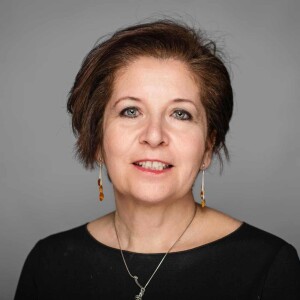
Wednesday Apr 26, 2023
Applied Research Creates Real-Life Tech Solutions - Show #109
Wednesday Apr 26, 2023
Wednesday Apr 26, 2023
I had the pleasure of first meeting Aytul Ercil at the 2022 International Women’s Entrepreneurial Challenge (IWEC) Awards Conference in Madrid, where we celebrated the cooperation of women-owned businesses throughout the world. In addition to being a delightful conversationalist, Aytul is a mathematician, professor, scholar, applied research expert, and entrepreneur; in this episode she describes her move away from theoretical research and toward its real-world business applications. Even with applied research, she explains, universities specialize only in research and developing prototypes but don’t take the products to market, instead they find existing companies to take the lead and launch. Working in applied research fueled her interest in launching the products herself; she started her first company alongside two graduate students and sold it to a strong and successful German company.
Now onto her second company, Vispera offers image processing for retail stores. By providing in-store monitoring with either pictures or installed videos, companies can keep track of compliance with price and promotion deals, stocking levels, layout and display issues, and inventory reporting. It helps solve the major pain in retail of capturing information on the selling floor to maintain inventory and increase sales. The Vispera system’s speed, accuracy, and precision in gathering information on the selling floor helps clients better manage production, operations, and distribution. In addition, with retailers managing ecommerce, they have the information to manage the coordination of in-store and on-line ordering.
Before the Vispera platform, companies relied on sales reps to visit stores, count items, fix displays, and communicate information – all very tactical and manual work. Now, sales reps can be more strategic when working with customers.
Based in Türkiye, Aytul knew from the start that she would need to launch internationally for success. Since her first target clients were large, international companies, she chose to build an English-only website, knowing it would reach more people than a Turkish language website. The strategy worked; her first customer, based outside of Türkiye, found Vispera through an online search.
Now implemented in 35 countries with clients such as Coca-Cola, CircleK, and Unilever, Vispera’s technology solution requires custom buildouts and adaptation, so rather than adapting her website and content, she hires bilingual employees to handle in-country communications with frontline customers. Since she hires local bilingual employees, I asked if she needs to culturally adapt her messaging for geographic markets. She says that most clients are large global companies dealing with the same issues and problems; in India, however, the company may have to adjust its messaging to account for the large number of “mom and pop” stores. Similarly, she does predict a need for website and other translation for particular countries.
While Vispera currently markets only in English, and the company continues to optimize their website for English search terms, its technologies can easily be adapted to other languages; for instance, it provides a Spanish-language platform for clients in South America.
Aytul lists her biggest challenges as:
- Having enough money for development and expansion
- Marketing resources
- Hiring good salespeople
- Meeting in-person with global teams around the world
(I can certainly relate to these – how about you!?)
And her biggest mistakes?
In her first company, to support development they accepted project-based work, quickly finding that delivering said projects meant little time for development. Once they found funding, Aytul recognized that doing the project work for so long slowed down the larger development of their initiative. Gaining funding and working with a partner sped up their success.
She adds that even a PhD in Applied Mathematics from Brown University does not mean you will understand finance or accounting; asked for a P&L statement, she had to look up its meaning, and made a few unwise financial decisions before taking the time to learn about the numbers.
Finally, as all sales managers can attest to, Aytul admits that it’s been a challenge to hire good sales representatives. It is an expensive position to fill, and she’s made mistakes. Now more seasoned when it comes to hiring, for her international expansion she’s found highly capable Managing Directors in key markets to build the local teams and the pipeline. To keep the company aligned, she holds regular meetings with the Managing Directors from each country and weekly meetings with each company manager.
Her final recommendations?
- Hire good people in each country that can manage the team and build a pipeline.
- Have a good on-boarding strategy and process for clients and employees and have it all documented and ready to go.
- Communicate with the team so that everyone is aligned to the same goal.
Fittingly, Aytul’s favorite foreign words are “perseverance” and “resilience”!
Links:
https://en.wikipedia.org/wiki/Ayt%C3%BCl_Er%C3%A7il
https://turkishwin.com/aytul-ercil
Connect with Wendy - https://www.linkedin.com/in/wendypease/
Connect with Aytul - https://www.linkedin.com/in/aytul-ercil-b833b43/
Music: Fiddle-De-Dee by Shane Ivers - https://www.silvermansound.com
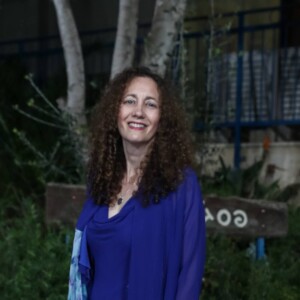
Wednesday Apr 12, 2023
Bible of Messages Meets the PESO Model™ - Show #108
Wednesday Apr 12, 2023
Wednesday Apr 12, 2023
Amy Kenigsberg, Cofounder and COO of K2 Global, joined me on The Global Marketing Show to discuss WIIFM (“what’s in it for me?”) communications, cultural messaging, and ChatGPT. K2 focuses on precise, nuanced messaging to impact everyone involved in the purchasing process, a strategy especially critical within account-based marketing (ABM). To that end, Amy developed a process that her agency uses to build a “Bible of Messages”: starting with the engineers from its technology company clients, K2 translates all the features and benefits of the “tech talk” into “marketing talk,” which is then customized to each of the decision makers in the buying process.
They then test rough draft messaging across industries, roles, and geography to validate the messaging specific to each player, driving each to emotionally connect with the client’s brand.
Continued client support combines K2’s Bible of Messages with the PESO Model™ developed by Gini Dietrich, of OBI. The PESO Model™ integrates and optimizes use of the four media types – paid, earned, shared, and owned. Building the Model based on specifics from the Bible of Messages accelerates the end-result of helping companies build authority and thought leadership more efficiently.
Recently, clients have asked Amy about ChatGPT and its ability to write content. Like many content creators and translators, we are watching the technology to see what it will do to our respective industries, and here’s what we’ve seen so far.
The good:
The speed and ability of ChatGPT is amazing and it’s great at smashing writer’s block. It can clearly develop a thoughtful flow to the content for an initial “pre-draft” (rather than a “rough” draft, which is simply putting ideas on paper). It gives great ideas for short content like social posts, it corrects grammatical errors, it eliminates boring rote tasks.
The Bad:
The program pulls from historical content, so even if it’s dated, ChatGPT makes it seem current, and real. Add to that the seemingly worldwide trend toward a “post-fact” culture and it’s easy to imagine how the continued recycling of inaccuracies could kick-start the multiplier effect of a world operating on widespread misinformation.
The content is consolidated, with neither source nor attribution to the original writers. When we write and publish, we cite our sources to add legitimacy to our work. Hopefully, the tide will likewise demand and formalize citation of content from any automated source.
Its ability to adapt the tone of its output to the intended purpose is still limited. With the lack of emotion, ChatGPT content can get boring to read. It may make sense to use it to generate an automatic first draft and then edit for nuance, urgency, and other emotional cues, but outside of potentially helping with a writer’s block, it wouldn’t necessarily save time.
The Ugly:
Have you ever heard of the Infinite Monkey Theorem? It states that a monkey hitting keys at random on a typewriter keyboard for an infinite amount of time will almost surely type any given text, such as the complete works of William Shakespeare. Amy compares ChatGPT to this theorem! Given enough tries, maybe the program can come up with a creative story that encapsulates your marketing message with enough emotion to capture your buyer’s attention.
The Concerns:
Amy describes her additional concerns:
On his Revisionist History podcast, Malcolm Gladwell explained the difference between an anecdote and a story. An anecdote talks about something that happened: “I went to the store and used a $5 bill to pay for the items I bought.”
A story adds some spice to the anecdote: “I went to the store and tried to pay for my items with a $5 bill. The shopkeeper laughed and threw the bill back at me.”
(OK, I edited it a tad from the podcast, but you get the idea.)
In essence, an anecdote recites; a story keeps you interested, and you want to know more.
ChatGPT can produce anecdotes; creative writers tell stories.
Good marketers are creative writers.
Perhaps inspired by our conversation, Amy says her favorite foreign word is the noun “balagan,” which is Hebrew for “mess”!
Links:
https://www.linkedin.com/company/k2-global-communications
https://mobile.twitter.com/k2gcomm
https://www.facebook.com/K2GlobalCommunications
Connect with Wendy - https://www.linkedin.com/in/wendypease/
Connect with Amy - https://www.linkedin.com/in/amykenigsberg/
Music: Fiddle-De-Dee by Shane Ivers - https://www.silvermansound.com
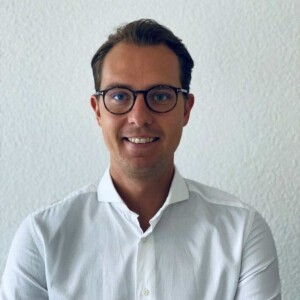
Wednesday Apr 05, 2023
Tech, Logistics, Environmental Impact, and Translation - Show #107
Wednesday Apr 05, 2023
Wednesday Apr 05, 2023
Marcus Mogéus, Chief Marketing Officer of AutoStore, explains that when you maximize efficient use of your space, you help the environment and the planet by minimizing your land usage – for industrial buildings, for instance. AutoStore helps warehouses, manufacturers, ecommerce companies and grocery stores optimize logistics and simplify fulfillment; the need for such services are clear, based on the company’s growth. With over 50% CAGR over the last 10 years, and over 70% CAGR during Covid, AutoStore’s global growth has been consistently explosive.
When AutoStore started in 1996 in a small town in Norway, its founder thought about global expansion from the start. Their mantra then and now:
“Let’s get as many bins as there are people in the world.”
To do this, they built a proprietary system that uses robots and tracks to move storage bins quickly to fulfill orders. Each system is custom-designed and -built for the client.
Operating in in over 45+ countries through a network of qualified partners and servicing multiple industries, Marcus’s biggest challenge in global marketing has been getting the messages right across countries and industries. For example, some countries focus on decreasing the costs of human involvement, while others want to focus on increased automation. Yet, it’s not as easy as localizing the message for each country.
Industries vary in what they want from AutoStore’s cube storage automation. An online apparel store cares about the speed of fulfillment, while an industrial products company may care more about cost efficiencies. These differences can then align across countries.
Marcus explains that language translation is an important part of their go-to-market strategy. AutoStore works with local agencies for translation, while coordinating global branding and messaging with the corporate office. Our focus is always on the human element and what the customers can achieve, he adds, and that simple goal has revolutionized automated fulfillment.
Links:
https://www.autostoresystem.com/
Connect with Wendy - https://www.linkedin.com/in/wendypease/
Connect with Marcus - https://www.linkedin.com/in/marcus-mog%C3%A9us-52501194/
Music: Fiddle-De-Dee by Shane Ivers - https://www.silvermansound.com
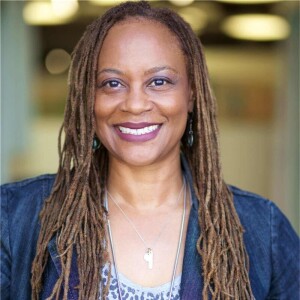
Wednesday Mar 29, 2023
Confronting Investment and Equity Injustice with Purpose - Show #106
Wednesday Mar 29, 2023
Wednesday Mar 29, 2023
Tracy Gray is Founder and Managing Partner of The 22 Fund, a venture capital fund that is facing investment and equity injustice head-on – in the finance sector, women and people of color are historically and consistently underrepresented.
In her varied career, Tracy has worked as Senior Advisor for International Business to the Mayor of Los Angeles, as a systems engineer (aka “rocket scientist!”) on a space shuttle mission, and following her 2015 TEDx Talk on “Why It’s Time for Women to be Sexist With Capital,” established We Are Enough, a non-profit focused on educating ALL women on investing in women-owned, for-profit businesses.
The 22 Fund builds upon that belief, that women and people of color don’t need any more “mentorship” or “technical assistance”; they need capital and help with exporting. It is a “mission-driven fund looking for high-impact and high-end returns” for climate-focused, self-sustaining technologies and ideas, and intentionally includes these historically overlooked groups.
Tracy focuses her portfolio on manufacturing companies, which are typically located in low- or moderate-income communities, with the goal of exporting to elevate the community via higher wages and greater access to opportunities. Exporting coupled with manufacturing sees wages nearing $100K annually on average, they’re more likely to have healthcare, and increased generational wealth for women and people of color, says Tracy. “Our mission is to create the clean, quality jobs of the future” in these lower-income communities.
The 22 Fund’s portfolio has launched products as disparate as:
- a fertilizer grow-medium for indoor farming created from food waste, targeted for use in sub-Saharan Africa;
- an alternative to the petroleum-based carbon black, the main ingredient in textile colors, produced from wood waste; and,
- a hair care product for textured hair, which turned into Sienna Naturals, a company now co-owned by Issa Rae.
Tracy believes the time is right for an “all-government approach” to manufacturing and exports. “America is an insular, consumer-based economy that expects to sell just to each other – a system based largely on the fear of being taken advantage of, or the unknown – but economic instabilities aren’t well managed without exporting,” she explains.
Relying on government services – the Department of Commerce, the Small Business Administration, EXIM Bank – essentially comprises a concierge service that can move a company through:
- Market analysis
- Marketing partners on the ground
- All the things you need to export
And these government agencies don’t market themselves so knowing what’s available to you is critical to global success. The 22 Fund will help by “providing the capital that doesn’t exist for these companies, especially for manufacturers, women, people of color, all of the capital gaps that exist.” All the entrepreneur needs to bring to the table is a good idea and the courage to succeed.
Links:
The 22 Fund - https://the22fund.com/
TedxOlympicBlvdWomen - https://www.youtube.com/watch?v=Uyggi2IYXXY
US Department of Commerce – Minority Business Development Agency - https://www.mbda.gov/
Small Business Administration Office of International Trade - https://www.sba.gov/about-sba/sba-locations/headquarters-offices/office-international-trade
EXIM Bank - https://www.exim.gov/solutions/get-financing
Connect with Wendy - https://www.linkedin.com/in/wendypease/
Connect with Tracy - https://www.linkedin.com/in/tracydgray/
Music: Fiddle-De-Dee by Shane Ivers - https://www.silvermansound.com
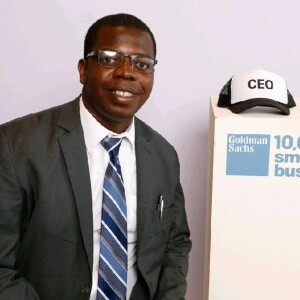
Wednesday Mar 15, 2023
Building an Export Business Through Organic Growth - Show #105
Wednesday Mar 15, 2023
Wednesday Mar 15, 2023
Ognadon Eddy Djagou (“Eddy”) is Founder and CEO of Muscatine, IA-based Djaagou-a Export LLC. He is also the Small Business Administration’s Exporter of the Year for 2022!
Born and raised in French-speaking Togo in West Africa, Eddy holds a BA in Marketing from a West African university and immigrated to the US in 2011 on a Diversity visa. The Immigration Act of 1990 inspired the Diversity Visa program, a lottery by which 15,000 people come to the US each year.
In Togo, explains Eddy, between one and 2 million people apply for the lottery; only 100 to 200 are selected and submitted for consideration by the West African government. “My dream changed” upon arrival, he says.
Following a two-year “integration” period in Illinois – learning English, working, obtaining proper identification – Eddy relocated to Muscatine, IA, where he quickly realized that its residents typically traveled at least an hour to neighboring cities to get any international or ethnic goods – like fufu!
Established in 2017, Djaagou-a Export LLC grew out of an organic process of simply sending samples of US food products to friends in Ghana, Nigeria, Cote d’Ivoire, and other regions of West Africa. What started with small packages of goods by 2020 turned into container shipments of rice, sugar, meat and fish, snacks.
Eddy set up a storefront, found a supplier in Chicago, and simultaneously launched an importing business, addressing individual requests from customers both domestic and abroad. A visit to his homeland found larger orders from West African-based importers and turned Djaagou-a Export LLC into a B2B, B2C, and B2G (government) operation.
Today, Djaagou-a Export LLC has the added mission of supporting the local community with their own exporting endeavors, so Eddy continues to work closely with the State of Iowa, the US Commercial Service, EXIM Bank, and the Small Business Administration (including a STEP Grant used for website translation). The opportunities that were made available to him are available to anyone: trade shows in foreign countries, 50% reimbursement grants to get started in exporting (for sending samples overseas, for example), funding for expansion.
His best advice? Small US businesses that imagine exporting as “risky” should be assured that there is a lot of opportunity and government resources that will help you succeed. “Do not look afraid, try something good!”
Links:
Connect with Wendy - https://www.linkedin.com/in/wendypease/
Connect with Eddy -
LinkedIn - https://www.linkedin.com/in/eddy-djagou-4321611a0/
Twitter: @EddyDjagou
Music: Fiddle-De-Dee by Shane Ivers - https://www.silvermansound.com
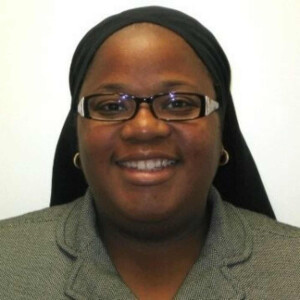
Wednesday Mar 08, 2023
Your Mindset Changes the Game - Show #104
Wednesday Mar 08, 2023
Wednesday Mar 08, 2023
Melissa Muhammad is the Founder and CEO of the Black and Global Business Network (BGBN). An international tax attorney, Melissa founded BGBN after 20 years with the US government, connecting businesses with exporting resources, creating opportunities, lowering trade barriers, and working with other countries to avoid any “double tax” that might stifle trade.
When racial tensions in the US intensified after the killing of George Floyd, Melissa was called to reevaluate her “cushy government job” and address her “professional tragedy” of never seeing a black-owned business come across her desk throughout her 20 year career. She had worked in 50 countries, lived on 3 continents, but never used her time or talent to help the black business community.
Challenging her fears of becoming an entrepreneur, and with help from a black-owned marketing company, Melissa formed BGBN. Success was immediate and Melissa attributes it to the richness of her existing relationships (in 54 African countries, Canada, the UK, and the Caribbean) and her ability simply to “listen to the people with the expertise.” In its inaugural virtual summit in April 2021, BGBN welcomed 1,100 attendees from 58 countries.
Melissa is often met with disbelief by black-owned entrepreneurs that the government resources she touts actually exist. Breaking down that barrier – the historical belief within the black community of a suspect Federal government – is part of the BGBN process.
BGBN provides exporting education, tests for global readiness, offers cultural competencies training, and incubates black-owned businesses at any and every stage. Its “done for you” solution means BGBN represents a company to government agencies.
Melissa’s best advice is that your mindset changes the game. Making the shift to an international focus and challenging your uncertainties isn’t easy – “keep the paycheck if you’re looking for easy” – but will leave you fulfilled.
Links:
www.blackandglobalbusinessnetwork.com
Connect with Wendy - https://www.linkedin.com/in/wendypease/
Connect with Melissa: https://www.linkedin.com/in/melissa-muhammad-829a6a15/
Music: Fiddle-De-Dee by Shane Ivers - https://www.silvermansound.com
